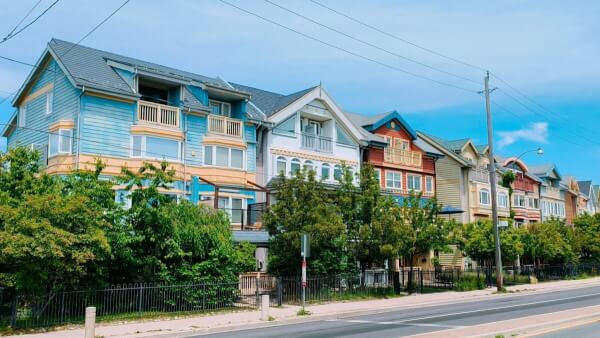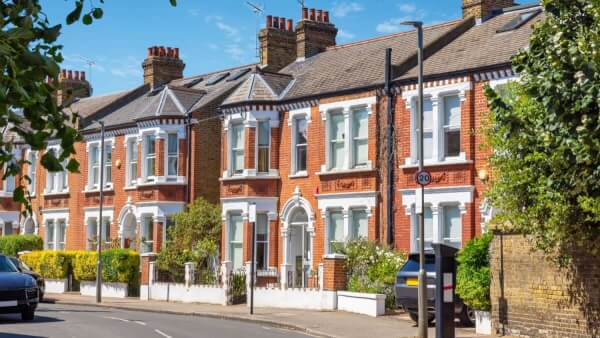Buying property in Canada as a foreigner
Read our comprehensive UK guide to buying property in Canada as a foreigner, including average prices, fees, taxes and where to start house hunting.

Moving to France is a common dream, and for good reason. This beautiful, hospitable country boasts fine wine and delicious food, as well as stunning countryside, vibrant cities and a fabulous coastline. It’s a wonderful place to make a home.
But if you’re planning to move to another country, or buy a holiday home there, you’ll also need to consider practical matters. One of the most important is property tax.
In this handy guide, we’ll help you get up to speed on the ins and outs of paying property tax in France in 2021/2022. So, let’s get started.
In most countries, property tax refers to any tax concerning real estate. Broadly speaking, there are two main categories of French property taxes you need to know about - sales taxes, and maintenance taxes.
Sales taxes are the ones you encounter when buying or selling property. They’re usually one-off payments, whereas maintenance taxes are paid regularly on property that you already own or rent.
In France, many of the costs associated with property sales are folded into one big fee, which encompasses both taxes and other fees.
However, French property maintenance taxes break down a bit further into two types - property ownership and residence. We’ll look at these in more detail in just a moment.
There are a few differences for residents and non-residents, but the bulk of the costs are the same for both.
When a property changes hands in France, the convention is that the buyer pays the main fee (frais de notaire - more on that one shortly). But there will likely be seller’s fees too.
Of the two maintenance taxes, one is always the property owner’s responsibility, while the other is always the occupant’s².
Some taxes have full or partial exemptions, which are explained further below.
There are a few different one-off taxes to pay when you buy or sell a property in France. Let’s run through each of these in turn, so you can factor them into your plans:
The notary’s fee is one of the biggest bills you’ll need to pay when you buy a property in France.
While it may seem large, the frais de notaire covers many of the costs related to the sale. And the good news is that the notary will usually do a lot of the legwork in putting together your bill.
The notary doesn't actually keep it - most of it goes to the state - but it’s gained its name because the notaire is the one who collects it.
The notaire's fee is made up of a variety of elements³:
This is far from a definitive list of all costs associated with buying or selling a property: they’re just the key ones that go into the notaire’s fee. If you’ve used an estate agent, they'll take a substantial commission too. And there are plenty of other possible fees as well.
Stamp duty is a tax on buying a house. In French, it’s known as droit de mutation. The rate of stamp duty varies slightly between the departments of France, and depending on the age of the property.
Be sure to check if the price advertised for a property is TTC or not: this stands for toutes tax comprises (all taxes included). If the price isn’t TTC, you’ll need to add stamp duty on to the asking price to get a more accurate picture of the overall cost.
Value added tax, known as IVA in France, is paid on the purchase of new homes but not on older properties¹. There is also TVA to pay on the émoluments fee that goes to the notary.
Part of the notaire’s job is folding all these fees and taxes together for you. So, the total frais de notaire bill you’ll receive will likely be greater than just the above. It may also include fees such as:
The official website of the notaires has a fee calculator where you can get a broad estimate of the total fee and how it’s broken down.
While the buyer shoulders a lot of the burden of the fees, selling a property in France has its costs as well. This includes paying a property agent and supplying technical reports, as well as capital gains tax (plus values)
This tax, known as impôt sur les plus values in France, is payable on the profits of selling a property or land. So, the difference between the price you bought it for, and the price you sell it for.
It’s made up of a flat income tax rate of 19%, plus 17.2% in social charges. So, if you’re selling a property in France, you could end up paying a rather hefty 36.2% in plus values on any profits you make.
Now that you’ve paid your notaires fees and other one-off sales taxes, there’s another category of French property tax to get to grips with as a buyer. There are two types of maintenance property tax - taxe foncière and taxe d’habitation.
Taxe foncière must be paid by the owner of the property, whether or not they live there. So, if you’ve bought a property to rent out, you’ll still need to pay this tax.
The amount you’ll pay varies depending on the value of the property and where it’s located - as each local authority sets its own rate. You’ll receive a payment reminder letter in the final quarter of the year, offering a choice of payment options including monthly direct debit.
In contrast to the taxe foncière, the taxe d’habitation is paid by the occupant rather than the owner. So, if you rent out your French property, the tenant will need to pay this tax.
But if you’re the owner and you live in the property yourself, there’s good news. As of 2021, the taxe d’habitation has been abolished for properties that are the owner’s principal residence. If you own a second home, you’ll only need to pay the tax on this property.
Like with the taxe foncière, you’ll receive a letter about this tax towards the end of the year, and you can sort out your payment method then.
The amount is calculated based on the condition and size of the property, and according to rates set by the local authority. This means that habitation tax rates can vary quite a lot from place to place.
If you’re looking to lower your tax bill ahead of buying a property in France, here’s a quick look at the exemptions and deductions you may be able to take advantage of:
It could also be worth speaking to a specialist tax advisor before starting your property search in France, just in case there are any other deductions or exemptions which may apply to your circumstances.
For sales tax costs, consult the notaire for a schedule, as they are in charge of billing and collecting the fees.
You usually receive bills for taxe foncière and taxe d’habitation towards the end of the year. Both are due on 1st January¹, so make sure you either pay the total promptly or set up a schedule of recurring payments.
For sales fees, it’s again best to check with the notaire to find out the best way to pay.
There are a variety of ways to pay most other property taxes. You’ll receive a bill for both taxe foncière and taxe d’habitation, which will detail payment options including monthly direct debit⁶.
Online payment is often a good option. To pay taxes online, make your way to the official government website. It will take you through the process step by step.
If you’re making a payment to the French government - or a French notaire - it’s important to check that you’re not paying banks or money transfer services more than you have to. The last thing you need is an extra cost on top of your taxes.
Wise is the ideal solution for covering overseas property costs, including taxes. Where banks and traditional money services tend to charge high fees and add a hefty mark-up to the exchange rate, Wise is different.
Send money to France with Wise and you’ll always get the real, mid-market exchange rate - the only one that’s fair. You’ll only pay one small transfer fee, stated clearly upfront.
And with a multi-currency account, you can hold money in euros for as long as you want, and get local account details so that you can send and receive payments with ease in the US, UK, EU, Australia and more. The Wise multi-currency account allows you to hold money in 50+ different currencies, switching between them whenever you want.
Taxes are always a headache, especially when property is involved. But hopefully after reading this guide, you should be better equipped to navigate the French property tax system - and handle your money internationally without losing out.
Bonne chance!
Sources used for this article:
Sources checked on 26-Oct-2021.
*Please see terms of use and product availability for your region or visit Wise fees and pricing for the most up to date pricing and fee information.
This publication is provided for general information purposes and does not constitute legal, tax or other professional advice from Wise Payments Limited or its subsidiaries and its affiliates, and it is not intended as a substitute for obtaining advice from a financial advisor or any other professional.
We make no representations, warranties or guarantees, whether expressed or implied, that the content in the publication is accurate, complete or up to date.

Read our comprehensive UK guide to buying property in Canada as a foreigner, including average prices, fees, taxes and where to start house hunting.

Read our comprehensive UK guide to buying property in Indonesia as a foreigner, including average prices, fees, taxes and where to start house hunting.

Read our comprehensive guide for non-residents selling UK property, including fees, taxes and timescales.

Read our comprehensive guide to selling property in the US, including fees, taxes, timescales and a step-by-step guide to the process.

Read our comprehensive guide to selling property in Switzerland, including fees, taxes, timescales and a step-by-step guide to the process.

Read our comprehensive guide to selling property in Portugal, including fees, taxes, timescales and a step-by-step guide to the process.